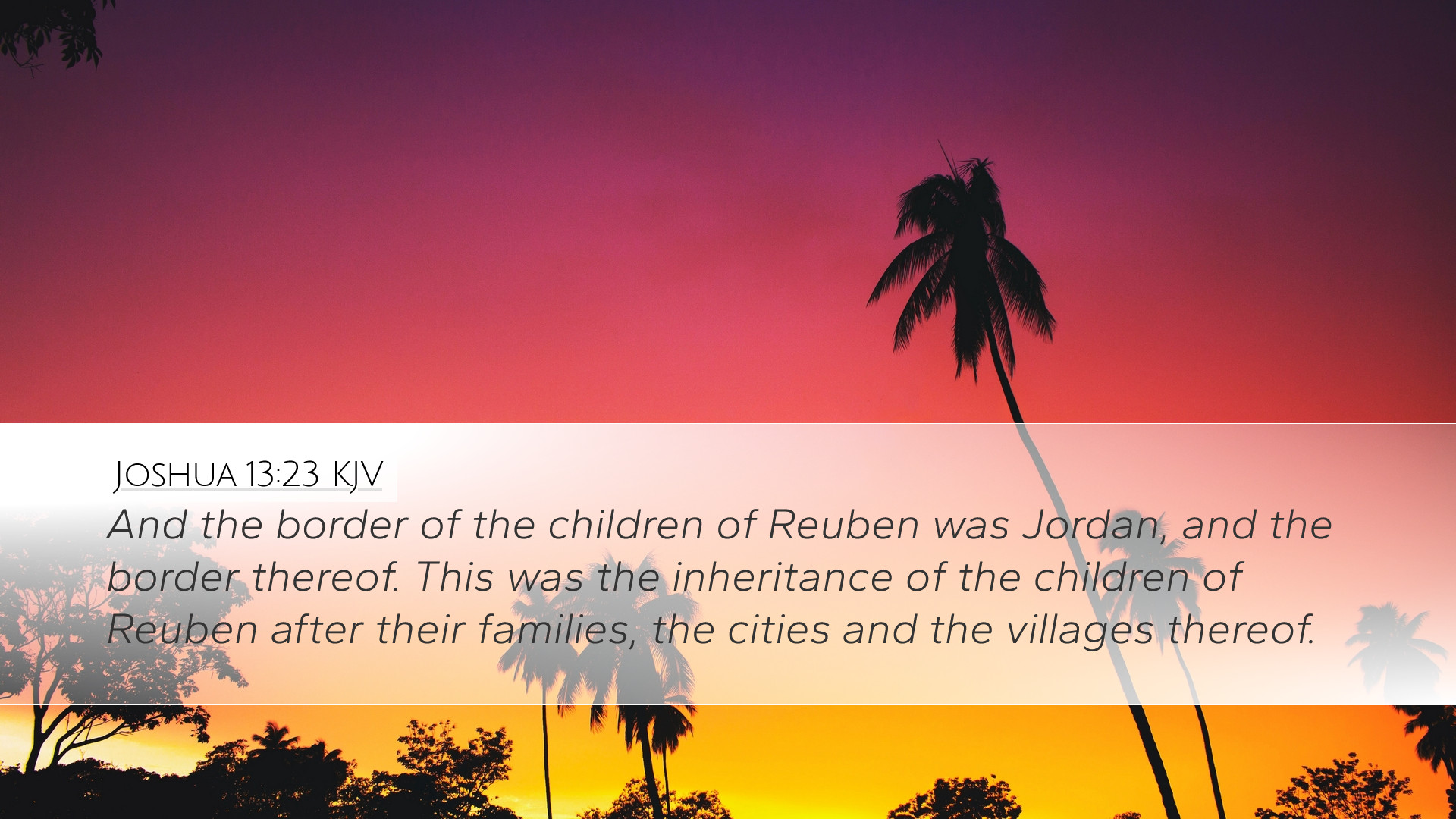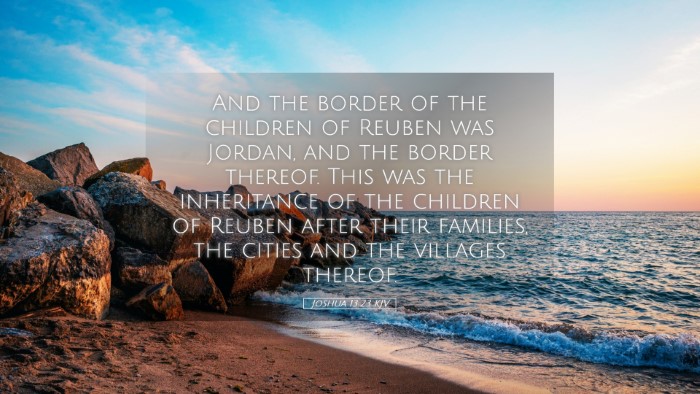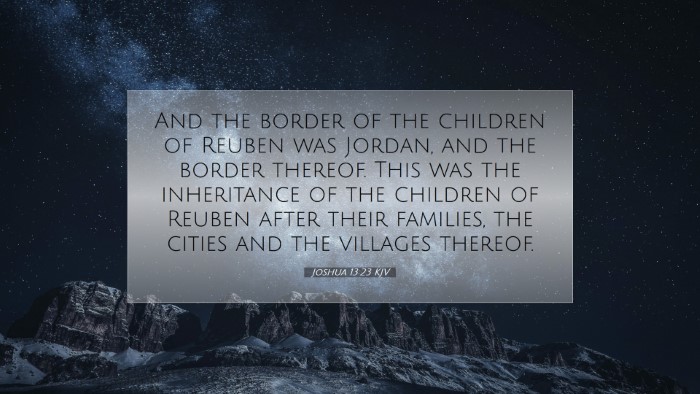Bible Commentary on Joshua 13:23
Verse: "And the border of the children of Reuben was Jordan, and the border of the children of Reuben was all the rest of the country of the children of Reuben." - Joshua 13:23
Introduction
The Book of Joshua represents a significant portion of Israel's history as they enter the Promised Land and take possession of it. Joshua 13 highlights the distribution of land to the tribes of Israel, focusing on the specific allocations that define their inheritance and territory. This verse is crucial in understanding the boundaries assigned to the tribe of Reuben, reflecting on the themes of inheritance, identity, and divine promise.
Contextual Background
In the preceding chapters, we see the culmination of Israel's journey through the wilderness, overcoming various challenges and enemies to reach Canaan. The chapter marks a transition into the phase where the land is divided among the tribes.
Historical Setting
The Reubenites were granted their inheritance east of the Jordan River after the defeat of their enemies, including Sihon and Og, kings of the Amorites. Their territory consisted of fertile pastures, which were suitable for livestock, conforming to their interests as herders.
Commentary Insights
-
Matthew Henry's Commentary
Matthew Henry emphasizes the divine order in the division of land. He notes that the borders assigned are not arbitrary but part of God’s sovereign plan for His people. The mention of Jordan serves both as a geographical boundary and a reminder of the miraculous crossing, symbolizing God’s faithfulness.
-
Albert Barnes' Notes
Barnes highlights the significance of territorial boundaries in ancient Israelite society, where land ownership was fundamentally linked to one’s identity and heritage. The assurance that the land belonged to the tribe of Reuben illustrates God’s covenantal promise to Abraham, Isaac, and Jacob, affirming their everlasting possession of the land.
-
Adam Clarke's Commentary
Clarke points out the pastoral nature of the Reubenites. He explains that the geography is tailored to their lifestyle. The elements of Jordan denote both a physical and spiritual delineation: the secured borders symbolize God’s protection over His people and their relationship with the land that they occupy.
Theological Reflections
Examining Joshua 13:23 through the lenses of these commentaries provides vital theological reflections:
-
Divine Sovereignty
The division of the land is a clear illustration of God's sovereignty. He not only chooses the land for His people but also governs who gets what. This sovereignty is foundational for understanding providence in the lives of believers today.
-
Identity and Heritage
For the children of Reuben, their land is not just a geographic location but an affirmation of their identity as God’s people. It's crucial for contemporaneous communities of faith to grasp their own identities grounded in divine promises.
-
Covenantal Promises
The inheritance granted to Reuben speaks of the broader theme of covenant in the Scriptures. The land is part of God’s covenantal commitment to His people, which extends through the ages and finds its culmination in Christ.
Practical Applications
Pastors, students, theologians, and Bible scholars can draw several key applications from this verse:
- Assurance in God's Promises: Understanding the nature of God’s promises reassures believers that, like the Reubenites, they have an inheritance that goes beyond the physical.
- Recognizing our Boundaries: Just as God defined the Reubenites' borders, believers today must understand their boundaries and responsibilities as part of God’s kingdom.
- Community and Identity: The importance of community in faith is emphasized as the tribes were given unique identities. Today, the Church exists as a collective body with distinct roles within the kingdom of God.
Conclusion
Joshua 13:23 encapsulates significant truths regarding God's dealings with His people through land promises and divine borders. As we delve into the insights offered by Matthew Henry, Albert Barnes, and Adam Clarke, we are reminded of the geological and spiritual significance of inheritance. We recognize God's unwavering faithfulness and the implications it carries for our identity and purpose in His kingdom. May this reflection inspire a deeper understanding of Scripture, leading to a renewed commitment to live in alignment with God’s divine design for our lives.


